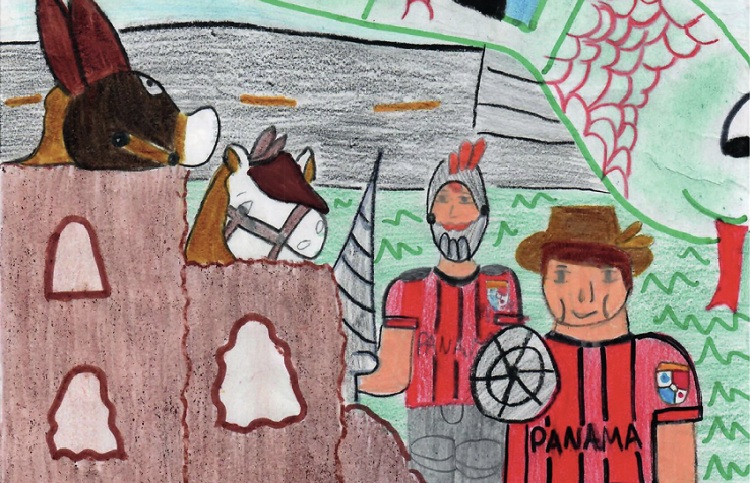The Diplomat
More than 300 schoolchildren from 14 Ibero-American countries have participated, under the supervision of renowned Spanish and Portuguese language writers, in a new version of Don Quixote thanks to an initiative of the Organization of Ibero-American States (OEI) to commemorate Spanish Language Day and World Book Day.
The Quinto Quijote (Fifth Quixote) is an educational, literary and collaborative project of the Department of Education of the City Council of Alcalá de Henares, with the close collaboration of the Organization of Ibero-American States for Education, Science and Culture (OEI), the publishing house Loqueleo de Santillana and the University of Alcalá. This Ibero-American Quixote is the fifth version of the project and this new version recounts the adventures of the Ingenious Hidalgo and his faithful squire Sancho as they travel through 14 countries in the region, starting in Alcalá de Henares, Spain, passing through Portugal and crossing the American continent from Argentina to Mexico.
In this edition, supported in the classroom by 41 teachers, and under the tutelage of renowned writers of Latin American children’s and young adult literature, each group of students has written a chapter of the novel -sixteen chapters in all-, with original content and highlighting elements native to each country. The introductory chapter was written by the renowned writer Santiago García-Clairac, winner of the Cervantes Chico Prize in 2004.
The 14 participating countries were Argentina, Bolivia, Brazil, Colombia, Ecuador, El Salvador, Spain, Guatemala, Mexico, Panama, Paraguay, Portugal, Dominican Republic and Uruguay. Colegio Gredos San Diego de Alcalá de Henares and IES Alonso Avellaneda, both in Alcalá de Henares (Madrid), were the Spanish schools that took part in the initiative.
The publication was launched on the eve of April 23, Spanish Language Day and World Book Day, proclaimed by the United Nations, “to join in the commemoration of these important milestones for Spanish-speaking culture”, according to the OEI.







